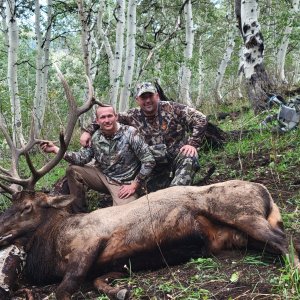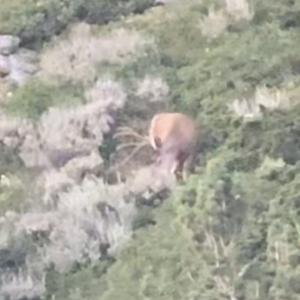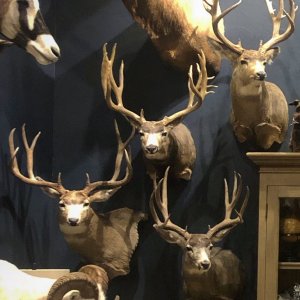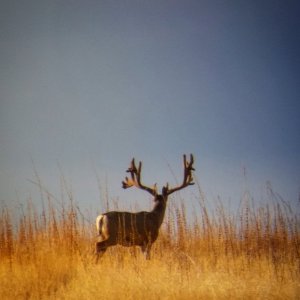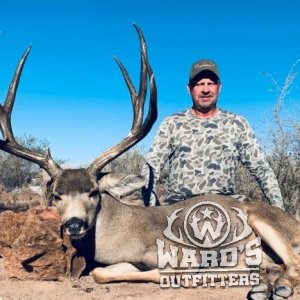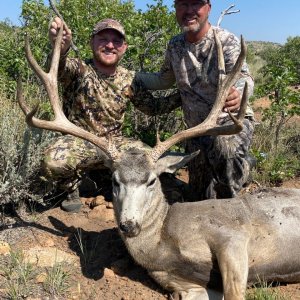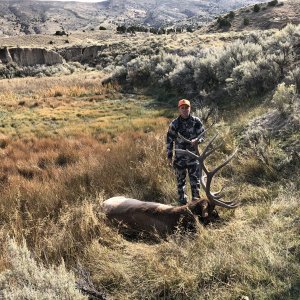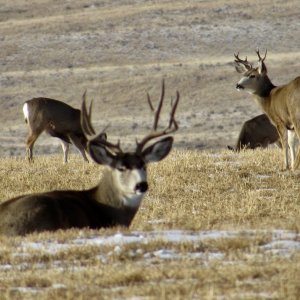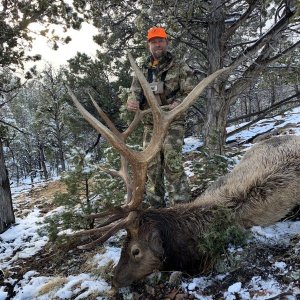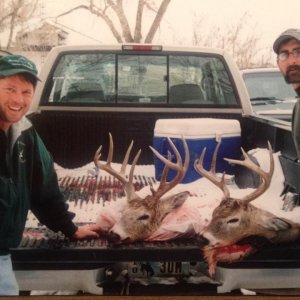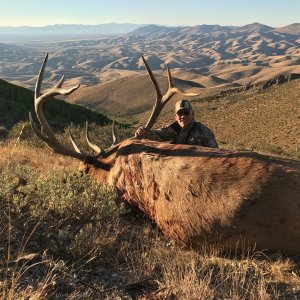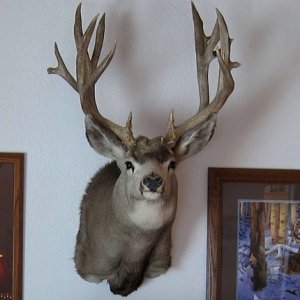LAST EDITED ON Jul-26-06 AT 08:49AM (MST)[p]
Congrats on the camera! Great question. Get ready, Im sure, that by the time I'm done, this post will rank right up there with my longest, just ask Gentry, I'm long winded. If this post is too long, move on now to something more your style, photography is my passion and therefore I cant just say do x, y, and z and you'll be a good photographer, it don't work that way, at least no for me.
Ask ANY good photographer and you will find much agreement among them about what I'm going to tell you. If you want something short and sweet, go pick huckleberries, they are ripe in Montana!
Elliot Porter (I have this quote posted in my house) said, "The more you photograph, the more you realize what can and can't be photographed. You just have to keep doing it." So, like Nike says, just do it!
Photography, like fly-fishing it is a system, you can't do just one thing, and you can't do something to X without effecting Y. You have to compromise, and you have to decide whats important. Almost always its the goal or the subject that is most important. Keep that in mind. . .
There are rules about this subject, things like composition, shutter speeds, exposure information, gear to buy, 2.8 this, f/16 at a 30th , afs this, ISO that, and slow and fast, and pixel counts, and data management, guidelines for processing and publishing and the list goes on. I'm not going into any of that; it's stuff you can pick up on your own and from another discussion. And, it's all relative and it's all the same, it is what it is. By the way, since we are on the subject of, "it does not matter," cause it's all relative, I shoot Nikon because that's where I started.
I don't like to post shooting data because its pointless to tell you what camera, what lens, what f stop, what aperture, ISO, shutter speed, WB, data card, etc., because its all relative to the subject, the light, and the gear at that moment in time. Cameras are tools -- that's it! Use them, push them to their limits, and make them do things that the guy who built it did not program it to do! Ever use a screwdriver for a pry bar, there you go. . .
I'd like to point out that I had the same questions as most of you guys when I started getting serous about this activity. What I have learned is this; the only shortcut is there is no shortcut. It's like trying to move cattle fast, the way to move the heard fast, is slow. I really mean that.
I put together a few thoughts about how to improve your photography, these are them. When I started photography, like many of you, I thought people could tell me x, y, z, top five or 8 things, and bam, I'm the man behind the shutter taken home smoken images of everything from chicks to deer, forget it! That's not the way it works. You can improve, but it takes time and practice, and you have to keep doing it over and over, and over again. And if you take a break, you get rusty. . . I think the reason I love it so much is because it is so challenging and never is it the same game twice. I'm always learning, I'm always getting challenged but that's what I love about it. . . Moving along, are you still with us Gentry?
The skill of photography, like hunting or like any skill that you get really good at takes time (I know this is not what you wanted to hear, but its true). Now, some people are gifted and pick this stuff up faster than others, but Im not one of those, I just work extra hard at it. In any event, the way to get good is to do it, and do it every day. Get to a point where you can adjust that camera without looking at it, do it in the dark!
Skills like casting a fly, roping steers or calves are things that require timing and angles, they take practice. In any event, below is a list that, if followed, WILL dramatically improve the likelihood that you get more keeper shots. I'll give you a list, but there are so many variables that any list will require modifications based on each persons own skills. It also is predicated on the fact that you must know your camera. For some people that is easy, for other, like me, it just takes forever of fiddling and trying new things. The key is to know what every single button does and what every single menu contains.
By the way, 100 shots may seem like a lot, but believe me, it's hardly cracking the shutter when it comes to how much practice you need. The thing is that those really good shots present themselves in an instant and they dont last long. That one great shot will only be there for an instant, and if you're fumbling around with your gear, you've just blown it! Some days I shoot 2,000 and get one keeper, other days I shoot 250 and get 200 keepers, so you never know. . .
Here's a summary, Gentry, if you�re still with us, you can stop after you read the next sentence, the rest is details and I know how you hate to get bogged down in the details.
START WITH THE BASICS -- SUBJECT, GEAR/CAMERAS, LIGHT, EXPERTS/FRIENDS!
1. Know your subject, be a better naturalist, be a better wildlife expert, be a better plant guy, be a better weather guy, be a better friend. . .
2. Know your equipment and how to optimize it's settings for the photos you want. WB, saturation, color space, sharpening, compression, tone, focus, metering, aperture, shutter, etc. all affect the final image. For landscapes shoot RAW and process at home.
3. Get a sturdy tripod and head - spend as much as you possibly can afford on this - 500-1000 is not too much!
4. Use it!
5. Take a course with a master wildlife or nature photographer, or go be around good photographers and you will learn tons, but only after you get your feet firmly on the ground. You dont want to waist your time or theirs. I know there are few guys that I really like, because they are dedicated and committed so I give them a lot of my time, but most guys scream in and race out without much thought. It's hard to learn from a real master unless you have the basics down and you know how you gear works. If you miss this point, you will have a less than meaningful experience, and you don't want to pay a master a $500 or $1000 bucks for a few days of shooting only to have him helping you figure out the buttons on the camera.
6. LIGHT. Light is the key. Learn to read it, learn to see it, and read about light science and how to light objects and it will improve your photography by leaps and bounds. Pay attention to the golden hours of light, and dont miss them.
7. Join a club, if there's one near by. I went only to one club meeting in my life, and it was a great experience. I have attended judgings, and I learned a lot from the open judging and listening to the judges rip people apart in an open forum. It can�t be beat and there's no other way to get honest feedback. On thing that people dont usually do is separate themselves from their photos and allow people with a good, critical eye, to critique it. Most get to emotional. It's okay to be connected to your craft, but you have to be able to take getting hammered a few times to start build your own style.
8. Find your own style, find what you love and shoot it better than anyone. There are really no rules, don limited yourself to what you see printed, photograph, or try to photograph what you love.
9. Listen to people who have done it, and who have been there, if they are willing to talk, listen. They may not be "right" but they have done it so they do know something that might help you.
10. Occasionally a little beer helps!

